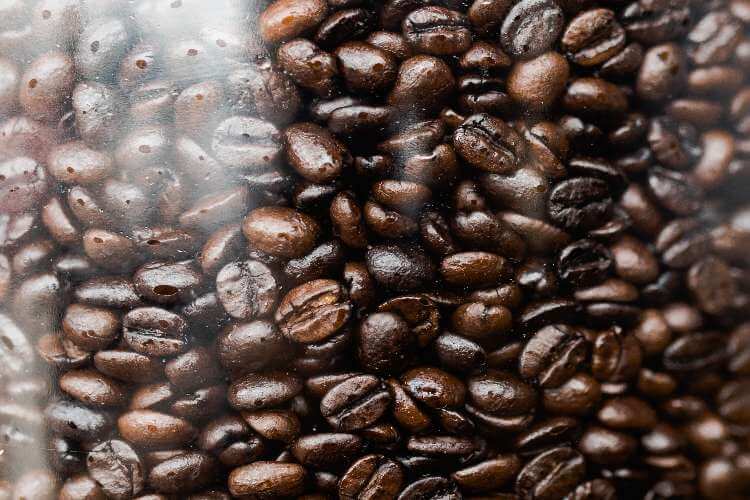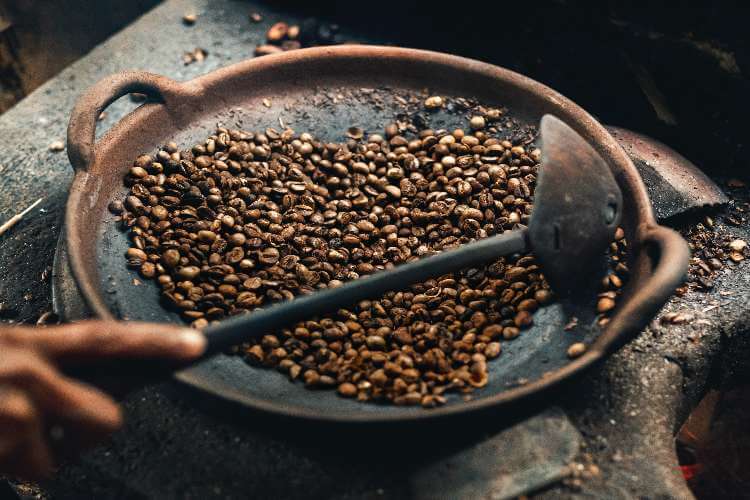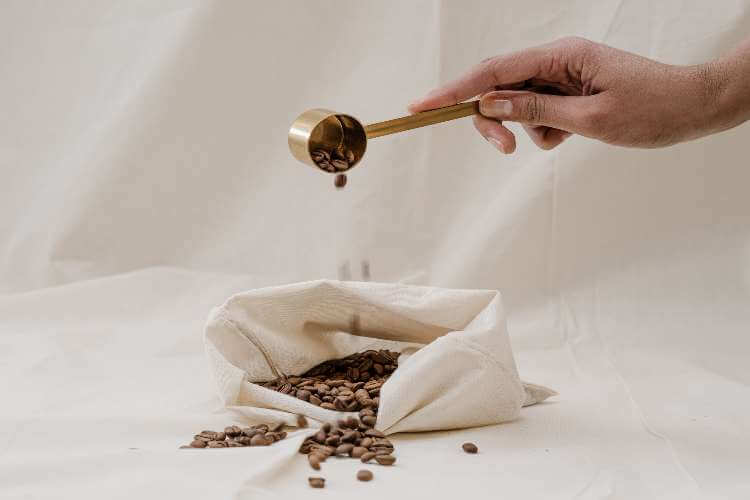
Is caffeine found naturally in coffee beans? Many people think caffeine is naturally found in coffee beans, but this is not true. In fact, caffeine is found in over 60 plants, including coffee beans, tea leaves, and cocoa beans. So, where does caffeine come from? Caffeine is actually a natural pesticide that helps kill insects and other pests. It does this by overwhelming their nervous systems and causing them to die. While this may be good for crops, it’s not so good for insects. And as more and more companies are using sustainable methods to produce their coffee, they are also looking for ways to reduce the amount of caffeine in their beans.
Coffee is the drink of choice for most people worldwide. It is a delicious, warm drink that helps many stay alert during their busy days and throughout the night when trying to study. However, many must determine if caffeine is naturally found in coffee beans. In this article, you will find out what caffeine is and how it impacts your body.
Caffeine is one of the critical ingredients in coffee beans. The article discusses the caffeine content of different types of coffee, where the caffeine comes from, and what it does to the body.

Have you ever wondered why coffee has a natural energizing effect?
Caffeine is a natural stimulant in coffee beans, tea leaves, and chocolate. It stimulates the nervous system and the heart, making it a popular choice for energy drinks. Coffee beans are known to have more caffeine than green tea but less caffeine than black tea. If you’re looking for an alternative to traditional coffee or don’t like the taste of coffee, consider drinking ginger tea instead!
What is caffeine?
Caffeine is a natural stimulant found in coffee beans. It is the world’s most widely consumed psychoactive drug and can positively and negatively affect the human body. Caffeine works by blocking the inhibitory neurotransmitter adenosine from binding to its receptors, which leads to increased levels of dopamine and norepinephrine in the brain.
This can lead to improved mental alertness and focus. However, too much caffeine can lead to side effects such as anxiety, jitters, and insomnia.
Caffeine is a bitter, white crystalline xanthine alkaloid that acts as a central nervous system stimulant. It is the world’s most widely consumed psychoactive drug. Unlike many other psychoactive substances, it is legal and unregulated in nearly all parts of the world. There are several known mechanisms of action to explain the effects of caffeine. The most prominent is that it reversibly blocks the action of adenosine on its receptors and consequently prevents the onset of drowsiness induced by adenosine. Caffeine also stimulates certain portions of the autonomic nervous system.
Caffeine is a naturally occurring stimulant found in coffee beans. It is the world’s most widely consumed psychoactive substance and is also found in tea, cocoa, and cola beverages. Caffeine acts as a central nervous system stimulant, temporarily warding off drowsiness and restoring alertness. Caffeine is also used to treat asthma and other respiratory disorders.
How does it affect the body?
Caffeine is a stimulant that affects the central nervous system. It can increase alertness and energy levels and cause jitters, anxiety, and increased heart rate. Caffeine can also lead to dehydration, so it’s essential to drink plenty of water when consuming caffeinated beverages.
Caffeine is a central nervous system stimulant. It works by blocking the action of adenosine, a molecule that slows down nerve cell activity. This increases the firing of neurons and the release of neurotransmitters like dopamine and norepinephrine. Caffeine also increases blood pressure and heart rate.
In small doses, caffeine can make you feel more alert and improve your mood. However, too much caffeine can cause jitters, anxiety, and insomnia. Caffeine is also addictive and can lead to withdrawal symptoms when you stop using it.
Caffeine is a stimulant that affects the central nervous system. It can increase alertness and improve mood. Caffeine can also cause side effects such as anxiety, restlessness, and insomnia. High doses of caffeine can lead to more severe side effects, such as rapid heart rate, irregular heartbeat, and seizures.
Does caffeine affect sleep?
Caffeine is a stimulant that occurs naturally in coffee beans. It is also found in tea, chocolate, and some soft drinks. Caffeine can have both positive and negative effects on sleep.
Some people find that caffeine improves their alertness and energy levels. However, others may find that it makes them feel jittery or anxious. Caffeine can also make it difficult to fall asleep and cause restless sleep.
The effects of caffeine on sleep vary from person to person. Some people are more sensitive to its effects than others. If you’re trying to cut down on caffeine, it’s best to do so gradually. Abrupt withdrawal can cause headaches and other symptoms of withdrawal.
Though caffeine is a natural part of coffee beans, how it affects sleep is unclear. Caffeine has been shown to both help people stay awake and improve alertness. However, it can also lead to insomnia and other sleep problems. The effect of caffeine on sleep depends on many factors, including how much caffeine you consume, when you finish it, and your sensitivity to caffeine.
Caffeine is a stimulant that can keep you awake and affect your sleep. Caffeine is found in coffee, tea, energy drinks, soda, and chocolate. If you have trouble sleeping, avoid caffeine after 2 p.m.
Is caffeine found naturally in coffee beans?
Caffeine is a naturally occurring compound found in coffee beans. It is also found in other plants, such as tea leaves, cocoa beans, and guarana berries. Caffeine acts as a stimulant, improving mental alertness and physical performance. Caffeine can also have side effects, such as increased heart rate and blood pressure, anxiety, and insomnia.
Yes, caffeine is found naturally in coffee beans. It is the most active ingredient in coffee and is responsible for the coffee plant’s energizing effects. For this reason, caffeine is sometimes added to other foods and drinks to give them a boost of energy.
Yes, caffeine is found naturally in coffee beans. Coffee beans contain about 1-2% caffeine by weight. Caffeine is a natural pesticide that protects the coffee plant from predators such as insects and animals. The caffeine content in coffee beans varies depending on the variety of beans and growing conditions. Arabica coffee beans typically have a higher caffeine content than Robusta coffee beans.
Caffeine is found naturally in coffee beans, but the amount of caffeine in a cup of coffee can vary depending on how the coffee is brewed. For example, espresso generally has more caffeine than drip coffee. The length of time that the coffee is brewed also affects the caffeine content – longer brewing times typically result in more caffeine.
Pros and Cons of Caffeine
Caffeine is a naturally occurring stimulant found in coffee beans. It is the world’s most widely consumed psychoactive substance and can positively and negatively affect the human body.
On the plus side, caffeine can improve alertness, focus, and concentration. It can also help to increase physical performance and endurance. On the downside, however, caffeine can cause anxiety, restlessness, and insomnia. It can also lead to dependence and addiction.
So what’s the verdict? Is caffeine good or bad for you? The answer is that it depends on your individual physiology and how much you consume. If you are sensitive to caffeine or overdo it, it’s best to avoid it altogether. But if you enjoy moderate amounts of coffee or tea without any adverse side effects, then there’s no need to give up your beloved cup.
Caffeine is a naturally-occurring stimulant found in coffee beans. It is also added to many processed foods and beverages, including energy drinks, soda, and tea. Caffeine can provide some health benefits but also have some adverse side effects.
Pros:
-Caffeine can improve mental alertness and focus
-It can also help to improve physical performance
-Caffeine can help to relieve headaches
Cons:
-Caffeine can cause jitteriness and anxiety in some people
-It can also lead to insomnia and disrupted sleep patterns
-Caffeine can be addictive and may cause withdrawal symptoms if you suddenly stop consuming it.
What is caffeine?
Caffeine is a bitter, white crystalline xanthine alkaloid, a central nervous system (CNS) stimulant. It is the world’s most widely consumed psychoactive drug. Unlike many other psychoactive substances, it is legal and unregulated in nearly all jurisdictions. There are several mechanisms of action to explain the effects of caffeine. The most prominent is that it reversibly blocks the action of adenosine on its receptors and consequently prevents the inhibitory binding of adenosine to these receptors.
Where does caffeine come from?
Caffeine is a naturally-occurring psychoactive compound in many plants, including coffee beans. It is also found in tea leaves, kola nuts, and cocoa beans. Caffeine acts as a stimulant in the body, increasing alertness and wakefulness.
How much caffeine is in coffee beans?
Caffeine is a naturally occurring compound found in coffee beans. The type of bean, the region in which it was grown, and the method of roasting all affect how much caffeine is present in coffee beans. On average, a coffee made with Arabica beans contains about 95mg of caffeine, while a coffee made with Robusta beans contains about 175mg of caffeine.
Other sources of caffeine
Yes, caffeine is found naturally in coffee beans. However, other sources of caffeine exist, such as tea leaves, kola nuts, and cocoa beans. Caffeine is also found in some energy drinks, sodas, and chocolate.
The benefits of caffeine
Caffeine is a stimulant that occurs naturally in coffee beans. It is also found in tea, chocolate, and some soft drinks. Caffeine can improve mood, increase alertness, and help to reduce fatigue. It can also enhance physical performance.

The drawbacks of caffeine
Caffeine is a stimulant that can have both positive and negative effects. While it can improve alertness and energy levels, it can cause restlessness, anxiety, and insomnia. Caffeine can also lead to dependency and withdrawal symptoms when people try to quit.
Conclusion
So, is caffeine found naturally in coffee beans? The answer is yes – but only in small amounts. The vast majority of the caffeine in your cup of joe comes from the roasting process itself. So, opting for lighter roasted beans may be a good idea if you’re looking for a way to reduce caffeine intake.
It is commonly believed that caffeine is naturally found in coffee beans, but this is not the case. Caffeine is a by-product of the roasting process and is added to coffee beans after they have been roasted. While there are some benefits to adding caffeine to coffee beans, it is vital to be aware that this substance can also adversely affect your health. If you are concerned about the amount of caffeine you consume, consider switching to decaf coffee or another caffeinated beverage.
Caffeine is naturally found in coffee beans and is responsible for the energizing effects coffee drinkers enjoy. The type of bean used, the brewing technique, and even the time the coffee is allowed to steep can all affect how much caffeine is in a cup of coffee. So if you’re looking for a little pick-me-up, check the label on your coffee beans before heading to the brew shop.



